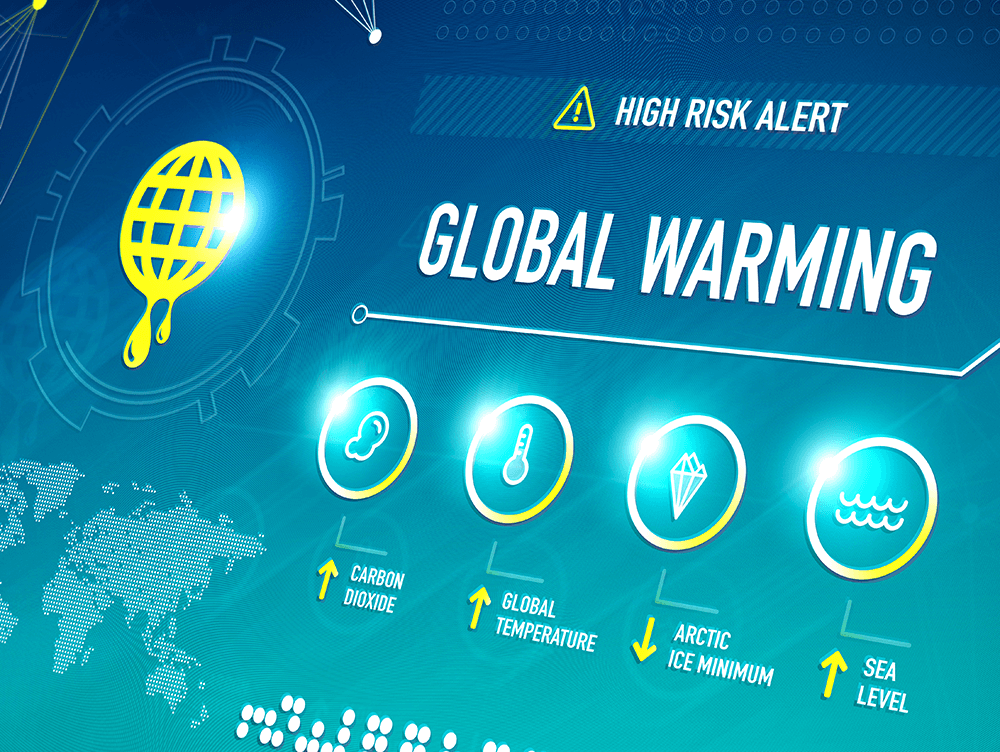Artificial intelligence (AI) has emerged as a powerful ally in the global battle against climate change. With its unparalleled ability to process vast amounts of data and facilitate informed decision-making, AI is transforming various industries and offering innovative solutions to address one of the world’s most pressing challenges.
Rapid iceberg monitoring
AI technology has revolutionized the monitoring of melting icebergs. Researchers at the University of Leeds in the United Kingdom have trained AI algorithms to measure changes in icebergs at a remarkable speed, enabling them to map large Antarctic icebergs in satellite images in just one-hundredth of a second. This breakthrough accelerates our understanding of the release of meltwater into the ocean, a process intensifying due to climate change.
Mapping deforestation
AI, in conjunction with satellite imagery and ecological expertise, is being employed to map the devastating impact of deforestation on the climate. Edinburgh-based company Space Intelligence has harnessed AI to remotely measure deforestation rates and estimate carbon storage in forests across more than 30 countries. This technology provides critical data for environmental conservation efforts.
Climate resilience in Africa
In Africa, AI is assisting vulnerable communities in Burundi, Chad, and Sudan to better prepare for climate change. The Innovative Knowledge for Climate-Resilient Development (IKI) Project utilizes AI to predict weather patterns, empowering communities and authorities to mitigate climate impacts effectively. This includes improving access to clean energy, implementing waste management systems, and promoting reforestation.
Optimizing waste management
The efficient management of waste is a pivotal aspect of combatting climate change. Greyparrot, a London-based startup, has developed an AI system that enhances waste processing and recycling facilities’ operations. This technology analyzes waste materials, tracking over 32 billion waste items across 67 categories in 2022, identifying an average of 86 tonnes of recoverable material that would otherwise end up in landfills.
Ocean cleanup with AI
The Ocean Cleanup, an environmental organization in the Netherlands, utilizes AI and other technologies to tackle plastic pollution in the oceans. AI-powered object detection helps create detailed maps of ocean litter, enabling more efficient cleanup efforts compared to traditional methods involving trawlers and airplanes. Reducing plastic pollution is crucial as it contributes to climate change through greenhouse gas emissions and environmental harm.
AI-enhanced climate disaster prediction
Sipremo, a Brazilian company, employs AI to predict the timing, location, and types of climate disasters. By analyzing data related to climate conditions, air quality, and other factors, Sipremo assists businesses and governments in making informed decisions to safeguard communities and infrastructure.
Google’s AI contribution
Google DeepMind is actively involved in the fight against climate change by applying AI in various areas. Collaborating with Climate Change AI, a non-profit organization, Google DeepMind is building a comprehensive dataset wishlist to advance global AI solutions for climate change. Other Google AI tools focus on improving weather forecasting and optimizing wind farm energy output.
Decarbonizing industrial sectors
Eugenie.ai, a California-based company, has developed an emissions-tracking platform that combines satellite imagery with data from machines and processes. AI then analyzes this data to help companies in metal and mining, oil, and gas industries track, trace, and reduce their emissions by 20-30%. Given that industrial sectors contribute approximately 30% of global greenhouse gas emissions, such efforts are crucial in the battle against climate change.
AI’s future potential
The World Economic Forum’s Top 10 Emerging Technologies of 2023 report underscores AI’s pivotal role in addressing global challenges like climate change. Generative AI, a type of AI that creates content including text, images, and computer programming, holds significant promise for applications in various fields such as drug design, architecture, and engineering. Additionally, AI can contribute to agriculture sustainability by processing data from crop sensors.





